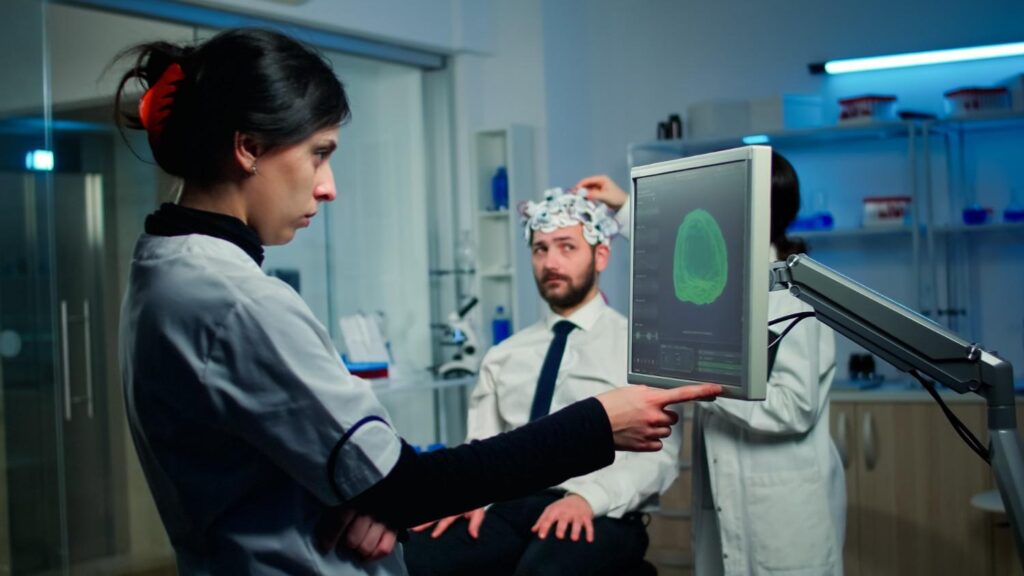Deep Brain Stimulation

DBS works by delivering small, controlled electrical signals to specific areas in the brain. This is done using thin electrodes implanted in the brain, connected to a small device (like a pacemaker) placed under the skin in the chest. These signals help to regulate abnormal brain activity, which reduces symptoms such as shaking, stiffness, and difficulty with movement.
Dr. Akash Singh offers Deep Brain Stimulation as part of his specialized neurosurgical care. Before surgery, patients undergo detailed evaluations including MRI scans, neurological exams, and psychological assessments to ensure DBS is the right option.
The surgery is done with high precision using real-time imaging and advanced surgical tools. Once the device is implanted, it can be adjusted externally to find the best settings for each patient’s symptoms. The patient remains fully awake during some parts of the procedure to help guide electrode placement.
Recovery from DBS is generally quick, and patients often experience a significant improvement in movement and quality of life. It does not cure the disorder but provides better symptom control with reduced medication doses.
Used for Parkinson’s, tremors, dystonia, epilepsy, and more
- Electrodes deliver signals to specific brain areas
- Device settings can be adjusted externally for best results
- Reduces symptoms and improves daily activities
- Helps reduce reliance on medications
- Safe, tested technology with long-term benefit